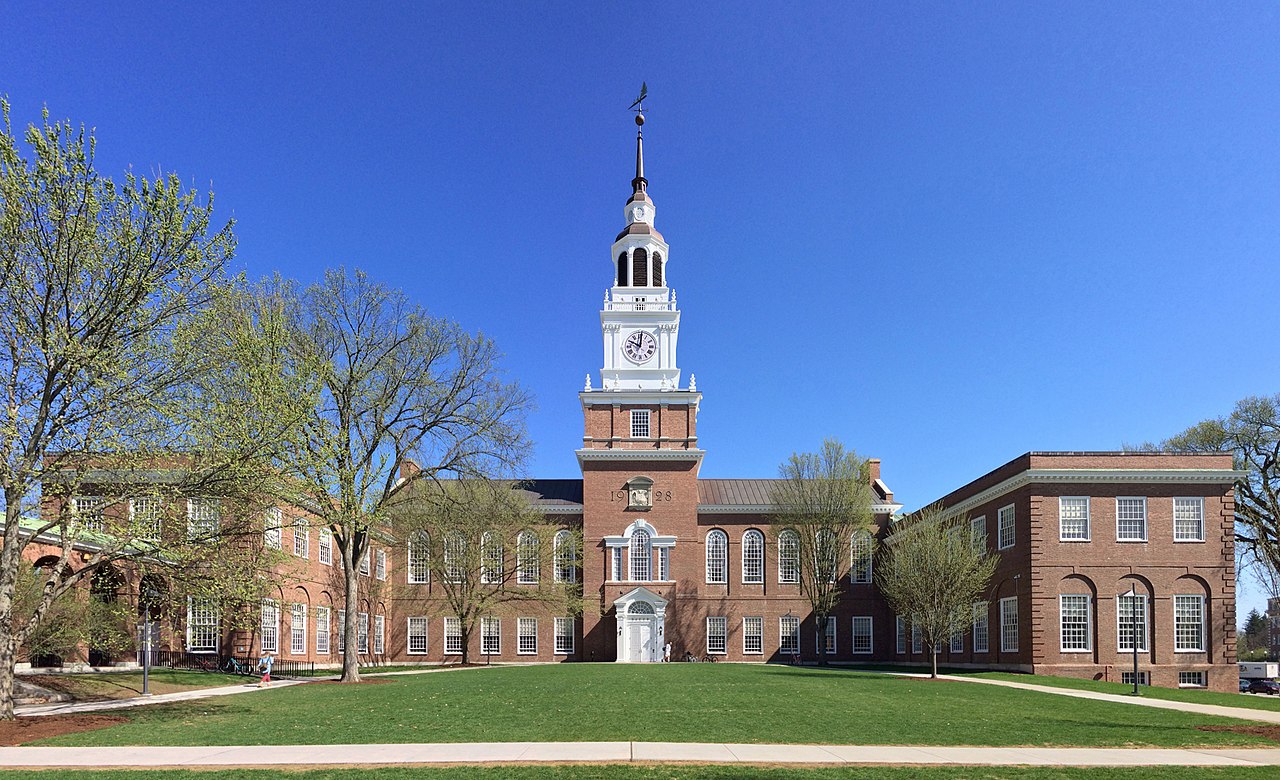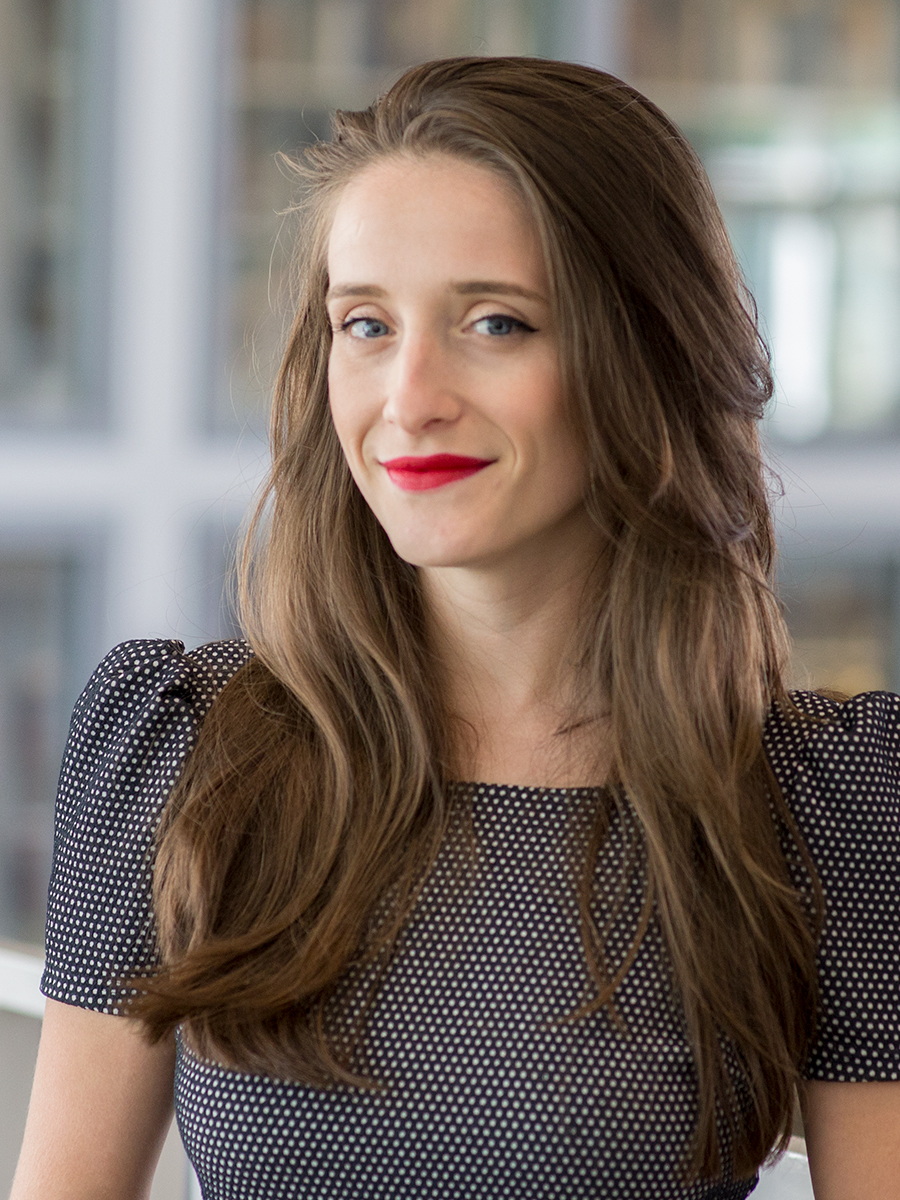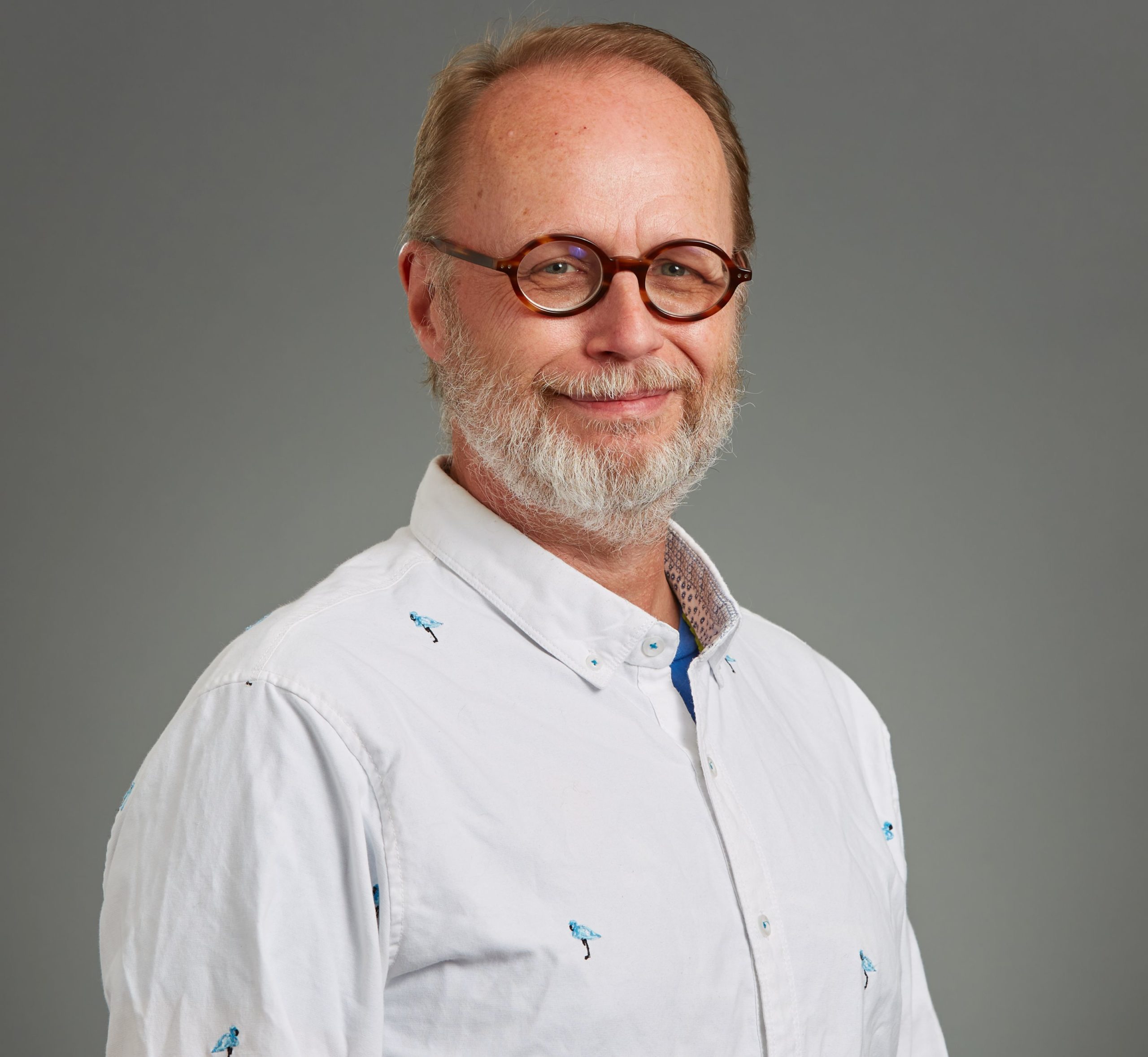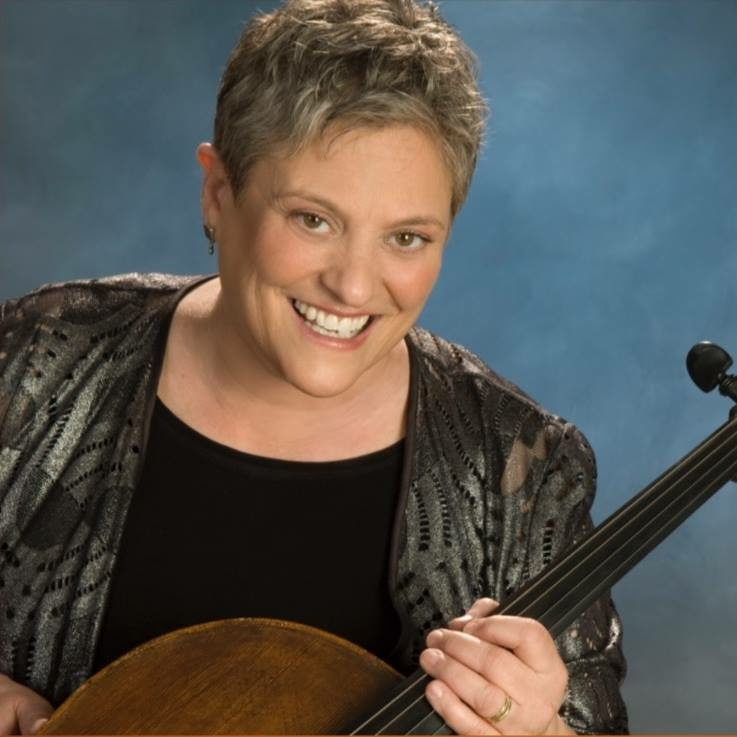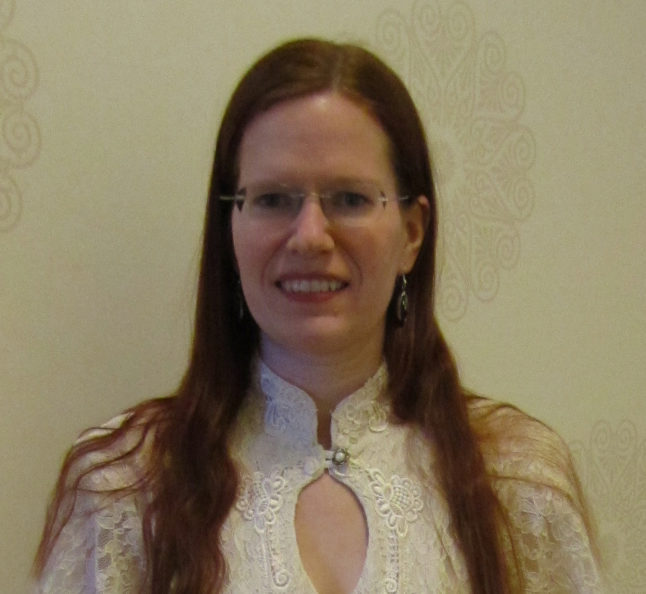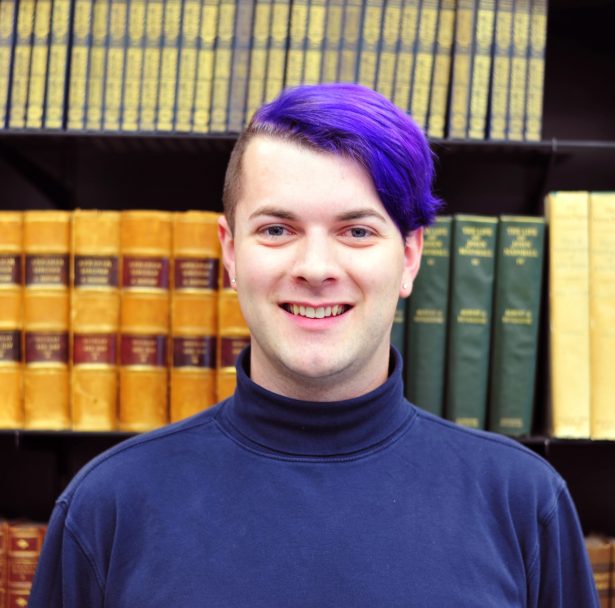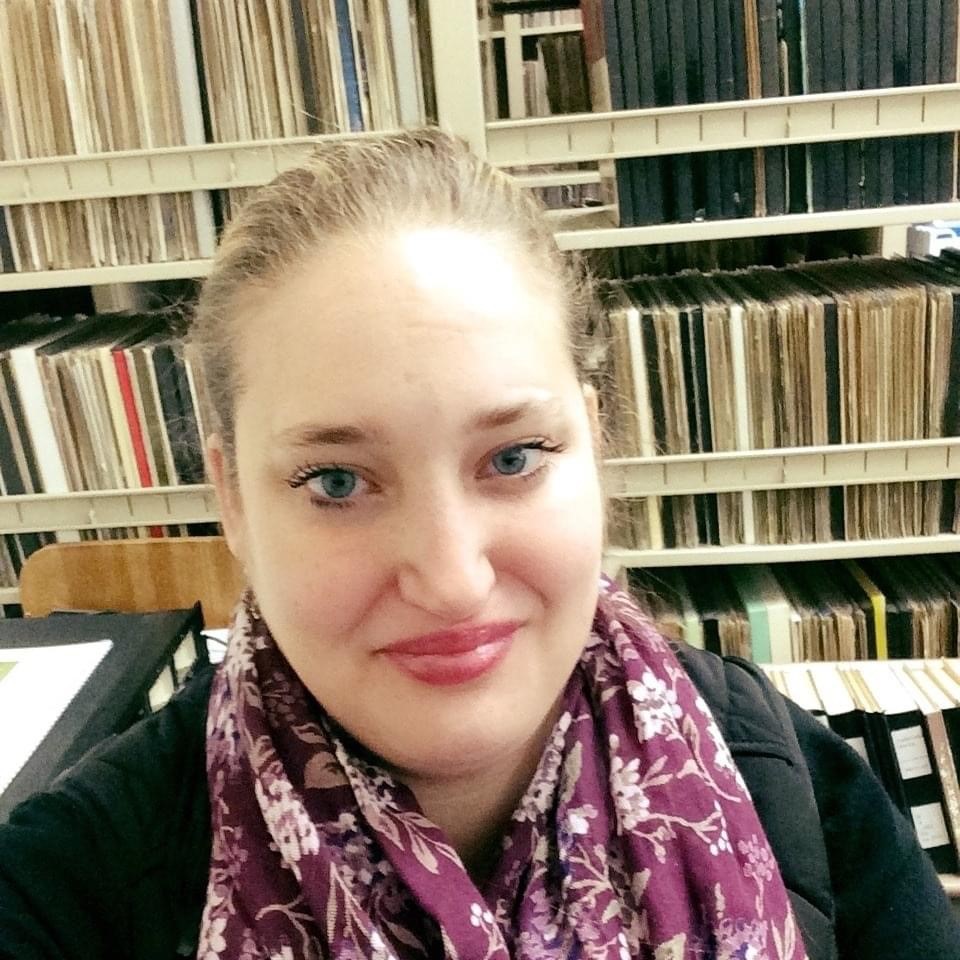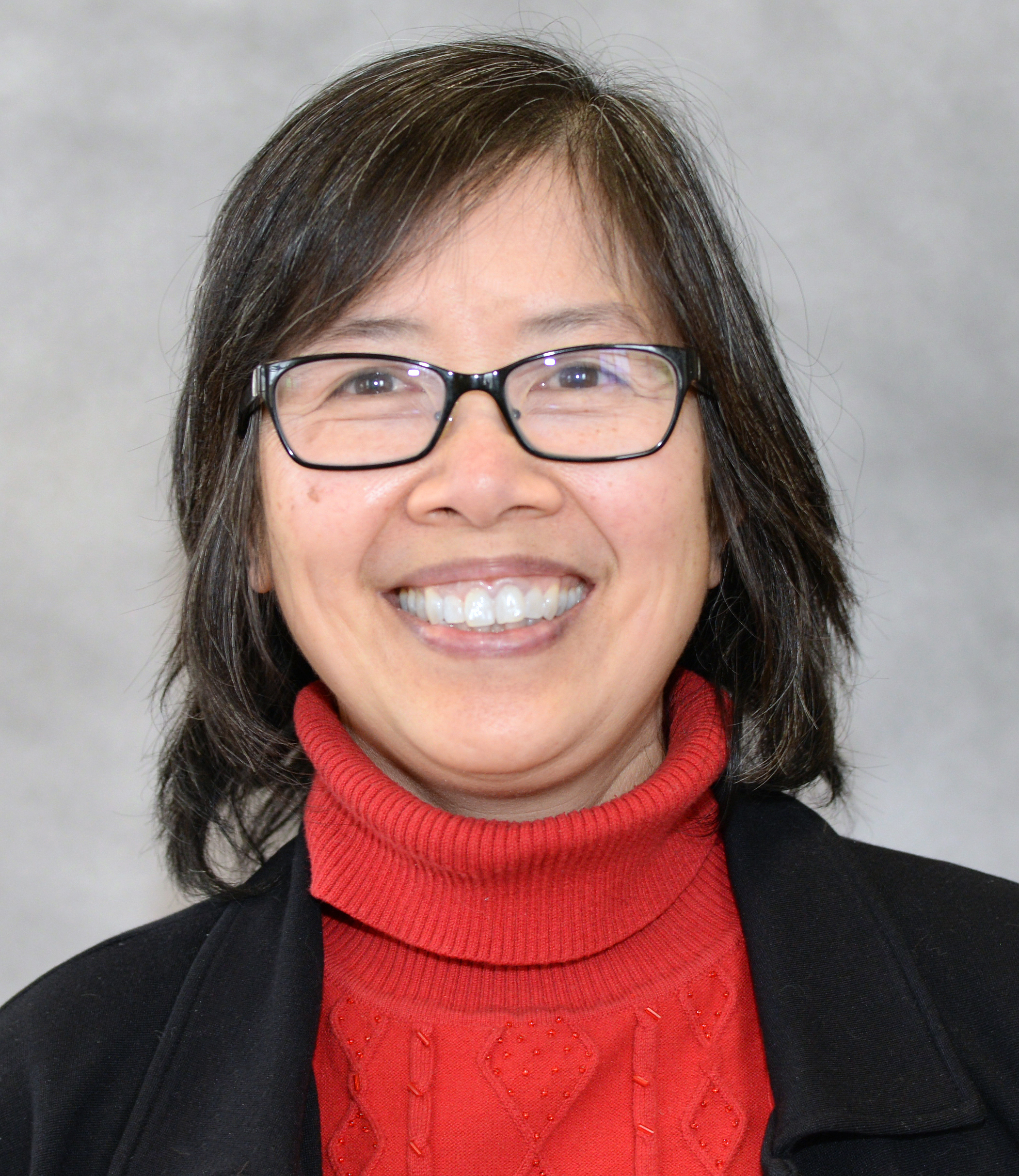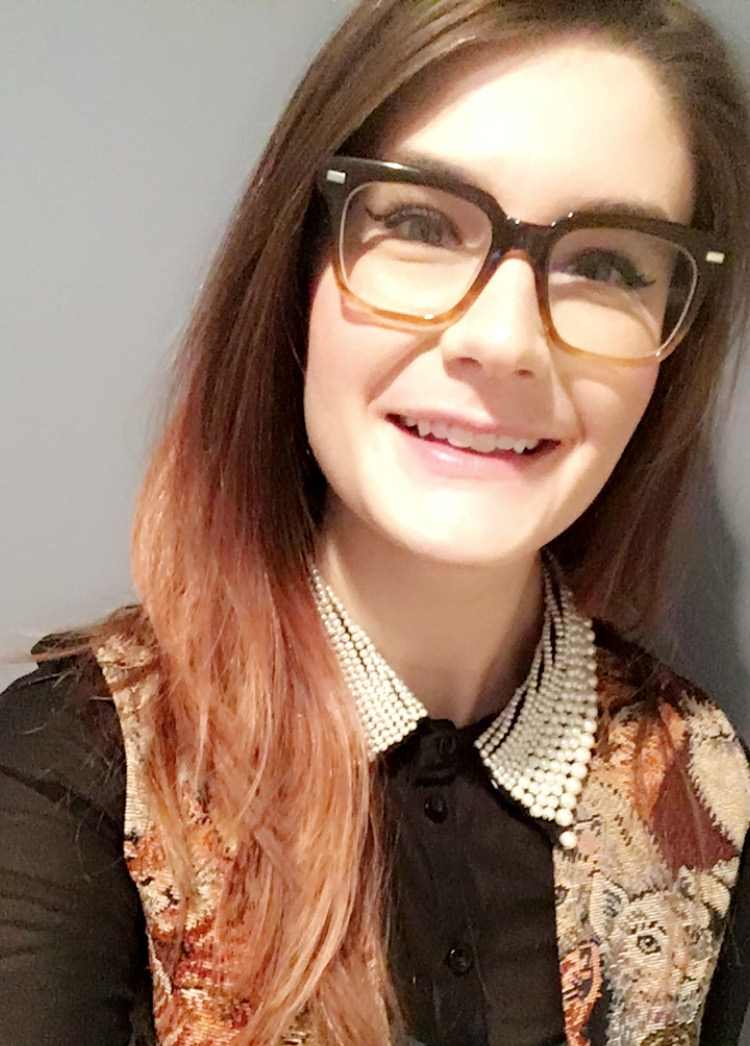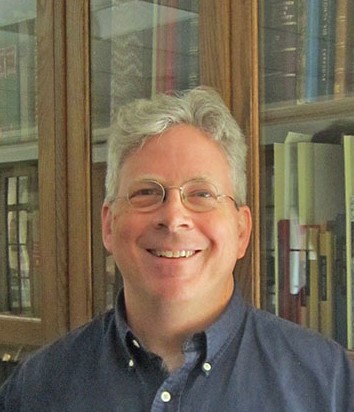
Table of Contents
Message from the Chair
— Fall Meeting Save the Date
Spring 2022 Meeting Summary
Secretary-Treasurer’s Report
Committee News – EDIJ Committee
Noteworthy News
— Tribute to Jean Morrow
— Remembering Michael Ochs
— Welcome to Jay Colbert
— Lush Life: A Jazz Story
NEMLA Officers
Publication Information
**************************************************
Message from the Chair
Dear NEMLA Colleagues,
I’d like to begin my first message as Chair will the utmost gratitude to you all. Your support and encouragement are the reasons I’m a music librarian and it is an incredible honor to serve NEMLA in this capacity. I’m excited to steward the work of recent officers this year!
First and foremost, I’m delighted to share that we will be mounting our first in-person event since Fall 2019. This decision comes after a recent survey of the membership, which indicated that 75% of respondents would like to see a hybrid meeting. The NEMLA board and Program Committee recognize that an individual member’s decision to attend in person will be reliant upon many factors including funding, the venue’s COVID precautions, the venue’s geographic location, and personal health risk. We are therefore making every effort to ensure that members can meaningfully participate either in-person or virtually. That said, I’m pleased to invite you all to join us (in whatever capacity feels right for you) for the fall meeting in Hanover, New Hampshire at Dartmouth College on October 7th, 2022.
Second, the board has drafted an amendment to the by-laws for review by the membership. Be on the lookout for a message on the NEMLA list-serv ahead of the fall meeting explaining the justification for the proposed change, alongside a ballot.
Finally, I want to give a special spotlight to the work currently underway by the Equity, Diversity, Inclusion, and Justice (EDIJ) Committee. I was recently able to sit in on a meeting to learn about the current and future projects of this small and ambitious group. The committee is preparing a workshop to guide members in the drafting of land acknowledgements covering the New England region, organizing a discussion session on the Notes special issue on race and music libraries, exploring an oral history initiative, and assembling a suite of resources on EDIJ for the NEMLA website. With so much work on the docket, there is ample room for this committee to grow. I would like to challenge any member with an interest in EDIJ work to consider joining, especially if you have skills in teaching or workshop facilitation, oral history, or data visualization.
Looking forward to gathering with you all soon!
Memory Apata
Chair, New England Music Library Association
Fall Meeting Save the Date
October 7, 2022
Dartmouth College, Hanover, New Hampshire
Spring 2022 Meeting Summary
In a departure from previous virtual meetings, the NEMLA Spring 2022 meeting was held over two days, the afternoon of June 9th and the following morning on the 10th. The main reasoning behind the format change was to avoid the Zoom fatigue that comes from full day meetings. The other benefit was that the Thursday session was only devoted towards the Business Meeting and Committee meetings, which allowed folks who may not wish to participate those meeting the option to only attend the Friday sessions. The minutes of that Business meeting are as follows:
Thursday, June 9th 2022 – Business Meeting
Business meeting minutes:
- Call to Order
- Sandi-Jo Malmon starts off the meeting thanking Memory Apata and the other programming committee members for their work arranging the meeting.
- Secretary/Treasurer report: Carol Lubkowski
- Carol provided the financial report
- Noted that there still money in the Oral History and MLA chapter grants
- 180 registrants for the Fall meeting
- EDIJ Committee report: Patrick Quinn
- Discussed plans to create a survey about what’s happening in local libraries
- The committee is currently focusing on exploring what NEMLA can do in terms of EDIJ and creating goals for the group.
- Plans to reassess the practice of land acknowledgements and develop best practices for members
- Archives report:
- BPL transition is progressing well, thanks to the hard work of NEMLA archivist Emily Levine and Jared Rex at the BPL.
- Open discussion about Chair cycle
- Sandi-Jo proposes a new chair cycle
- Past chairs have lamented the short 3-year chair cycle.
- The nominating committee had a hard time finding folks to serve as chair, possibly because the year serving as head of the Program committee is hard work.
- Some members are confused by the proposed cycle
- Why change things?
- Would this lead to added work for chairs?
- The cycle seemed a little confusing.
- Other members proposed that all chairs support the Chair-elect during the year as Program Committee head.
- Sandi-Jo proposes a new chair cycle
- Election results:
- Vice Chair/Chair-Elect: Terry Simpkins
- Member-at-Large: Emily Colucci
- Committees meet in Break-out rooms
- Handover to new Chair
- Memory accepts the “gavel”
- Old Business
- None
- New Business
- None
- Meeting adjourned
Friday, June 10th 2022 – Presentations
Keynote: Jazz and the Academy, presented by Colin Hancock
The morning presentations started with a Keynote from scholar Colin Hancock, who presented on Dartmouth’s contribution to the Jazz Age, through their student jazz band The Barbary Coast Orchestra. The presentation was a fascinating look into how a small student-led musical group in the 1910s playing music frowned upon by the institution, could evolve into a major band on the Dartmouth campus. Their popularity grew enough for them to tour across the US and for them to make recordings, some of which have luckily survived to today. Hancock framed the band’s successful trajectory as a result of both the rise of recorded sound and the popularity of early jazz on college campuses, yet the group’s sustainability was due to strong leadership and their ability to stay current with jazz styles. He illustrates how The Coast (as they were commonly called), was one of several collegiate jazz bands at the time, particularly among the other Ivy League schools. It was a wonderful glimpse into the musical activities on college campuses 100 years ago and an impressive display of scholarship on the part of Hancock, who gathered much of the information from Dartmouth’s library and was able to locate quite rare recordings.
Unburied Treasure: Adapting a Physical Music Exhibition for the Digital World, presented by Leo Sarbanes, Harvard University
Creating exhibits, both physical and digital has been an interesting challenge for librarians over the last two years of the pandemic. Both for reasons of accessibility and outreach, librarians have been focused on creating digital exhibits that fall somewhere within a spectrum: from a complete replication of a physical exhibit, to one that merely complements the content. At Harvard’s Loeb Music Library, graduate student and library assistant Leo Sarbanes was tasked with developing an online presence for one of their physical exhibits. The exhibit was titled “Treasures of the Last 10 Years,” which highlighted major additions to their library’s collection through a broad scope of materials, both in their general and archival collections. The variety of materials proved to be one challenge, from planning workflows around digitizing multiple formats, to understanding the complex copyright concerns for each item. Yet the online aspect allowed for added enhancement to the exhibit, such as the ability to add audio to the digitized scores. They used the platform Omeka for creating the online exhibit, which proved to have its share of pros and cons. For one, Omeka features an annotation tool, so they could add context and notes to manuscripts. For display, they chose a non-linear navigation method, which effectively presented the scope and depth of the collection, but flattened the experience for the user and removed the arrangement considerations that were made for the physical exhibit. Sarbanes notes that the process was a constant reminder about how a physical exhibit is often about a narrative and moving it online means determining how that narrative is translated or perceived in an online context.
Henri Lazarof: A Composer, an Archives, an Exhibit (well 2!) and a Pandemic, presented by Surella Seelig, Brandeis University
Coming from the archival perspective, Surella Seelig spoke about the process of creating an exhibit, both physical and online. The subject of her exhibit was Henri Lazarof, a composer and graduate of Brandeis, whose family donated his papers to their archives. This exhibit proved to be a wonderful case study about the processes and pitfalls that one might encounter while creating an exhibit. Surella was faced with myriad challenges, including a tight budget, limited staff, working with an unprocessed collection, the pandemic, and her own limited background in music. Yet these difficulties helped her highlight some of the essential elements to exhibit building, including knowing how to narrow the focus of the exhibit to properly portray the subject but not overwhelm the audience. She delved deeply into the basics, like how to tell a narrative with the documents, be selective with the accompanying text, and effective labeling and arrangement. She also described the limitations she faced creating a digital exhibit, the limits of having to use the institution’s CMS, rather than an exhibit creation software, and handling copyright concerns with embedded audio. To conclude, she reiterated that the exhibit is meant to promote the collection and that creators should always remember that “The collection is the main course and the exhibit is the appetizer.”
Building a Digital Archive of Ottoman Classical Music, presented by Ridvan Aydinli, Wesleyan University
The final presentation provided an in-depth look into Omarsiv, a digital repository dedicated to Ottoman-Turkish classical music. The repository features a vast collection of sheet music, score collections, and recordings. What is immediately striking about the scores in the collection is the wide variety of notation styles, primarily Western style notation, but also Byzantine, Hampartzum, and other non-western notation styles. Similarly, some scores include a mixture of Latin language characters and Arabic script. Ridvan led attendees through the public-facing site, particularly the robust search engine and the detailed metadata for each item, as well as showing the back-end side of the database, discussing how documents are uploaded and the peer-reviewed metadata approval process. What is most impressive is the uniquely detailed metadata that each item is given. This not only creates a robust and agile search engine, but allows for specialized interactivity with the collection. As an example, Ridvan showed how the database is able to provide a side by side comparison of works of the same name, but published in different notation styles. In all, the repository is an example of how specialized metadata and intentional systems structuring can create a database that allows users to not just view the digitized materials, but also have an enriched research experience. Ridvan invites those with suggestions for further developing this metadata system to contact him at raydinli at wesleyan.edu.
Submitted by Brendan Higgins, outgoing NEMLA Member-At-Large
Secretary-Treasurer’s Report
We continue to be in very good financial shape. Due to holding all our meetings virtually over the past two years, we have had very few expenses. Both our October and June meetings were held over Zoom. Our only meeting expense was a fee for our keynote speaker at the June meeting.
Prior to the membership renewal period, we had 69 active members. If you have not yet renewed your NEMLA membership, I encourage you to do so. If you have any questions about renewing, please contact me at clubkows at wellesley dot edu.
Submitted by Carol Lubkowski, NEMLA Secretary-Treasurer
Committee News
Equity, Diversity, Inclusion, and Justice Committee
The EDIJ Committee has been meeting the last few months and has been productive moving forward on several short and long term goals. These include work on the institutional land acknowledgement process, creating a framework for a NEMLA EDIJ glossary of terms, EDIJ-focused oral history project planning, and programming for the upcoming fall meeting.
The committee is still open and welcomes interested membership from all backgrounds. If you are interested in joining the committee, please reach out to Patrick Quinn, EDIJ Officer at pquinn6@bu.edu.
Noteworthy News
Tribute to Jean Morrow
Jean Morrow, age 77, died Sunday, May 15, 2022, surrounded by family, after a short battle with cancer. Daughter of the late William and Pauline Perry, Jean was born and raised in Cranston, RI. As the oldest sibling, Jean was always a guiding light to her younger brothers and sister. Her smile and leadership touched so many wonderful people but especially at the New England Conservatory of Music.
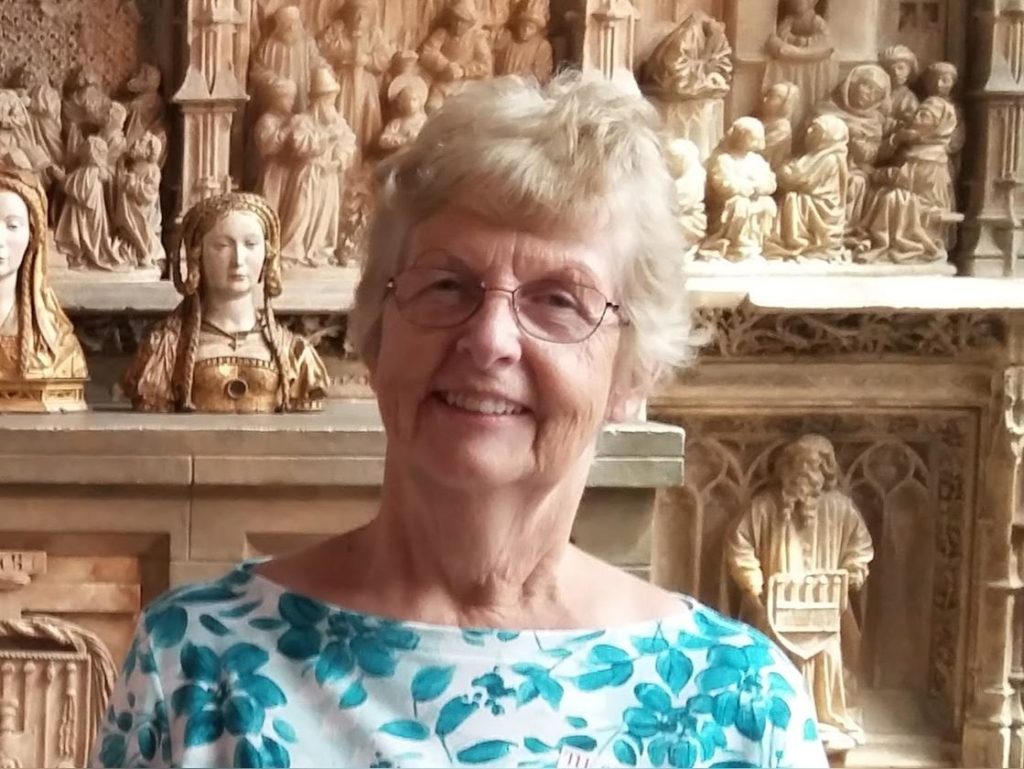
Jean earned her bachelor’s degree in Liberal Arts from MacMurray College, her master’s degree in Music History from Smith College, and pursued advanced studies in musicology at New York University. In the early 1970s, Jean joined the staff of New England Conservatory as a catalog librarian and subsequently served as Director of Libraries from 1986 until her retirement in 2014. She was always warm and generous to her staff, whether it was bringing in donuts from Linda’s in Belmont for a staff meeting or taking the library staff out for an annual holiday lunch. Jean was so beloved at NEC that she was selected by her colleagues to be the first ever recipient of the Robert Rachdorf Staff Service award in 1999. Jean advocated for a new library at NEC for many years and played a central role in the planning and development of the Blumenthal Family Library which opened in 2017. The totality of Jean’s contributions to NEC were recognized when she was awarded an honorary doctorate by the institution in 2019.
Outside of NEC, Jean also made significant contributions to the field of music librarianship. Throughout her professional career, Jean was a generous mentor and an engaged teacher of music librarianship at the Simmons College Graduate School of Library and Information Science, where she taught and guided generations of music librarians. An active member of the Music Library Association (MLA) as a member-at-large on the board of directors, Jean held numerous MLA committee appointments, and served as chair of the New England regional chapter. Her deeply felt commitment to the betterment of the profession of music librarianship came to full flower in her untiring advocacy for, and subsequent leadership of MLA’s Basic Manual Series. The Basic Manual Series produced nine titles under Jean’s chief editorship and has become a mark of MLA’s leadership in the field, fulfilling their mission statement to “promote continuing education and professional development in music librarianship.” As a result of all of Jean’s contributions to the field of music librarianship, she was awarded MLA’s highest honor, the A. Ralph Papakhian Special Achievement Award for 2014.
Jean was also a friend to so many of us in the Music Library Association, and in the New England Chapter of MLA. She rarely missed a meeting of either organization during the four decades she was at New England Conservatory. Jean spearheaded a New England table at the MLA banquets where we all enjoyed her company and that of others. Jean was always up for a good time (generally that would include a nice glass of wine or a cocktail!). She certainly knew how to live life to the fullest.
Jean was also an accomplished organist, having served as an organist at St. John the Evangelist Church for many years.
Jean is survived by her loving daughter Wynne, dedicated siblings Gail, Bill, and Bob, their families, as well as many nieces, nephews, and wonderful friends. Jean was predeceased by her partner of 43 years, John Joanou.
Submitted by Pat Fisken
Remembering Michael Ochs
August, 2022
Since the news came down on July 21, 2022 that Michael Ochs died at the age of 85, Sandi-Jo Malmon and I have been exchanging reminiscences about Michael, and his impact on us, and upon our profession. Michael was very human: He was complex. He was generous. He had a wicked good sense of humor.
Michael Ochs was one of the very first persons I met upon moving to the Boston area 32 years ago. In my mind’s eye, I always picture Michael from that day, as he spoke with me about music librarianship sitting at the Loeb Library. He was influential to me in becoming a fully credentialed librarian (even though I never held an official fulltime music librarian job until coming to Berklee). Still, it was an ideal for me, not least because of the work by people like Michael.
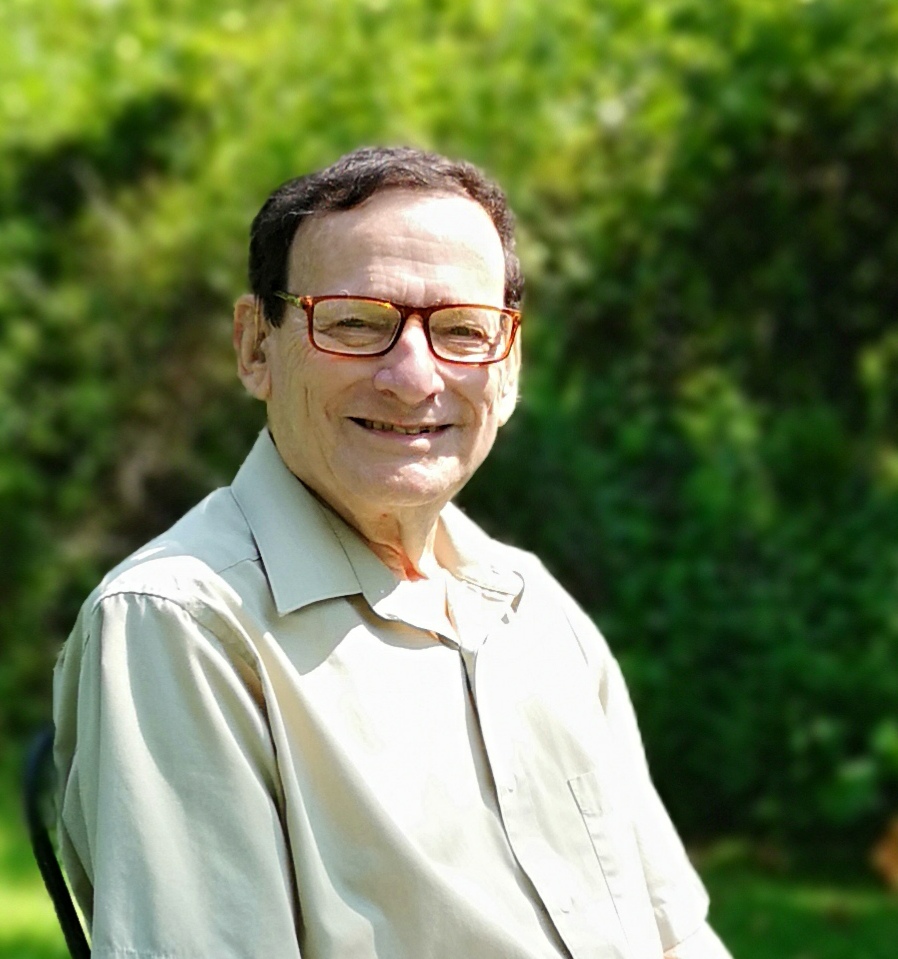
Michael was born on February 1, 1937, in Cologne, Germany. He came to the United States in 1938 and was naturalized in 1945. He was the son of Isaac Julius and Claire (Baum) Ochs and the brother of Dani and Eva. Michael is survived by his wife of 63 years, Carol Rebecca Ochs, his daughters Elisabeth and Miriam, and their spouses, Lea and Anton.
For nearly six decades, Michael served in one capacity or another as a music librarian, musicologist, educator, early music performer and music editor, first in the Boston area and, for the past thirty years, in New York City.
He started out in the early 1960s at CUNY as a cataloger, where he immediately became a member of MLA in 1963, and since attended more than 50 national meetings during his career. He worked as a music librarian nearly another 30 years — at Brandeis, a professor at Simmons, and as the Library Director at Harvard’s Loeb Library, while also a senior lecturer on music. During Michael’s tenure as library director at Harvard University, Richard F. French, class of 1937, endowed a music library chair, the Richard F. French Librarian in the Eda Kuhn Loeb Music Library. It was the first music library chair in the United States. After he left Harvard, he served as the music editor for W.W. Norton through 2001. He never left his profession as a researcher, editor, or his interest in librarianship.
Michael gave more than 14 presentations to music librarians, both nationally at MLA, at chapters, and for other groups; published 9 scholarly articles and served as editor for two major publications, including Music Librarianship in America in 1991. In addition, he published another 15 scholarly articles in Notes, the MLA Newsletter, and 6 book reviews for MLA. He served as Editor of Notes from 1987-1992.
He was a longtime member of the American Musicological Society, serving on the board of directors from 2000-2002. For over 40 years, Michael served librarianship as an organizational leader, serving in numerous capacities of the Music Library Association, including on the board of directors from 1977-1978, and as president from 1993-1995. He served on many committees, including the New England Chapter (1968-69): Committee on Bibliographic Description (1971–73); MLA Administration Committee (1975–76); MLA Finance Committee (1976–78); and MLA Publications Committee (1983–87). He also most recently served as a member of the MLA/AMS Joint Committee on RISM (2014-2017). Michael served as chair for the Research Libraries branch of IAML from 1987-1990. Very notably, Michael served greater librarianship by establishing the U.S. RISM office at Harvard in 1985, and by establishing the Music Librarianship program at Simmons University in 1986.
At meetings, and conferences Michael was always most welcoming to many younger librarians, including me, at MLA, inviting me to join with his friends for late night drinks and chatter. Michael’s personal generosity to MLA extended in the establishment of the Michael Ochs Endowed Fund for Notes, and in 2015, provided a matching grant of $5000 to raise additional money for the Michael Ochs Endowed Fund.
In most recent years, we’ve been among the many beneficiaries of the musical achievements Michael has given by his recreation and reconstruction of the music for the Yiddish operetta Di goldene kale (The Golden Bride). In some of the early stages of his work, Michael and I exchanged emails about Yiddish theater music and his research, and he enjoyed coloring them with a smattering of Yiddish. Michael generously gave an early talk about this production at our Jewish Music Roundtable in Texas a few years before the project was completed.
We learned about the early stages of the project and how he conducted his research, piecing together an old piano-vocal score with a libretto found at YIVO, with a lead sheet, and then with some orchestral parts found in other archives. Afterward, sewing together the old pieces of the operetta, as well as translating it, Michael constructed and realized a full score. It was a stunning achievement piecing together this long-forgotten piece of ethnic Americana. There was an initial concert performance with piano at CUNY in 2015, followed by a performance with orchestra at Rutgers in August 2016. In New York City, the National Yiddish Theatre Folksbiene’s production ran for 80 performances. I was able to see the live production in New York, where Michael greeted me, and we relished and celebrated his achievement.
Not only did the show run to critical acclaim, receiving two Drama Desk nominations, but Michael also published a production-ready two-volume score. This recreation was so fabulous in particular because Michael understood the musical nuances of Yiddish theater so well.
As we reviewed all these achievements, Sandi and I realized once again that we have lost a person of great importance to MLA, to music at W.W. Norton, to music librarianship, and to us.
Submitted by Judy Pinnolis and Sandi-Jo Malmon
Welcome to Jay Colbert!
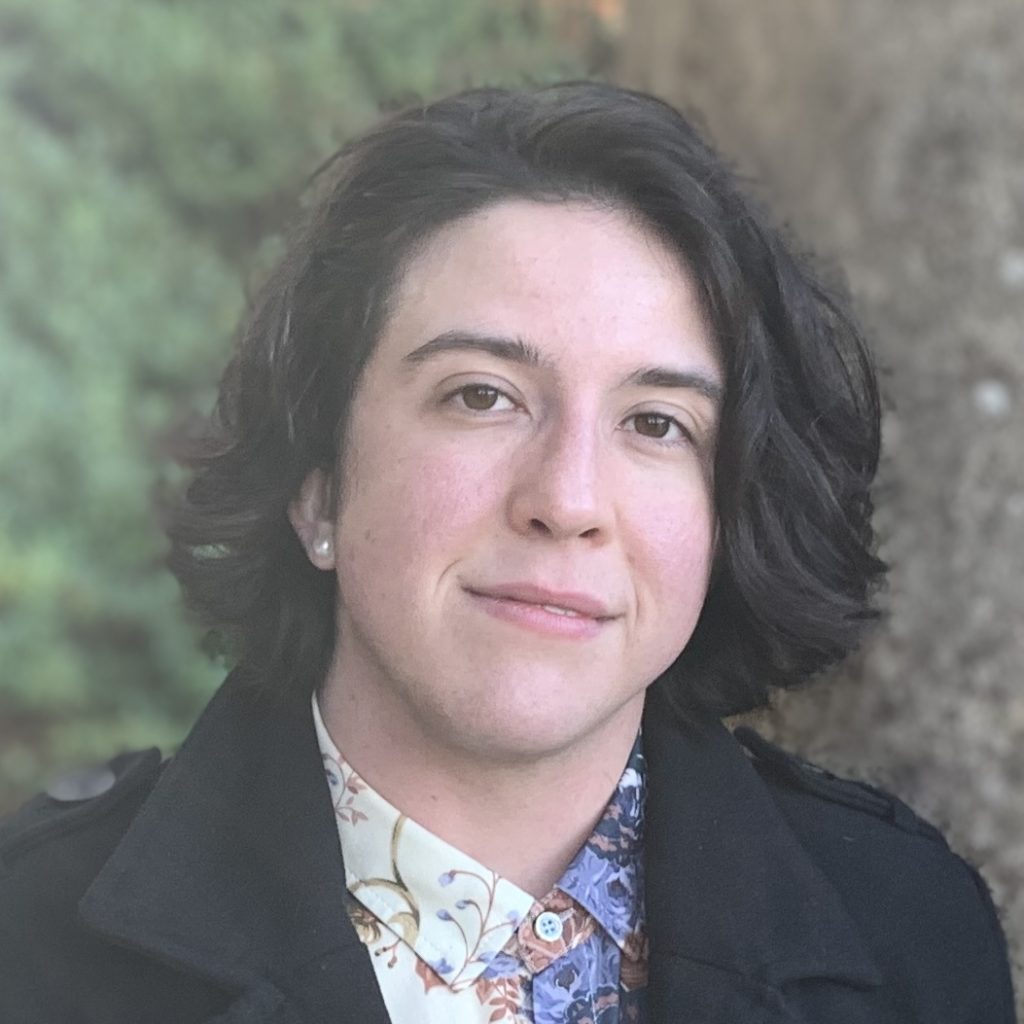
I’m Jay Colbert, and I started as the new Library Director at the Longy School of Music of Bard College on June 27th. My professional background is in metadata and cataloging, but I’ve always wanted to work in a music library. I’m interested to explore what being a librarian means in a conservatory, and I’m excited to be part of Longy’s ongoing efforts to diversify its repertoire and center music as social change. I’m also interested in investigating how digital humanities and other digital projects might play a role in the services I offer to students, staff, and faculty.
Submitted by Jay Colbert
Working with a Connecticut College First Year Seminar — Lush Life: A Jazz Story
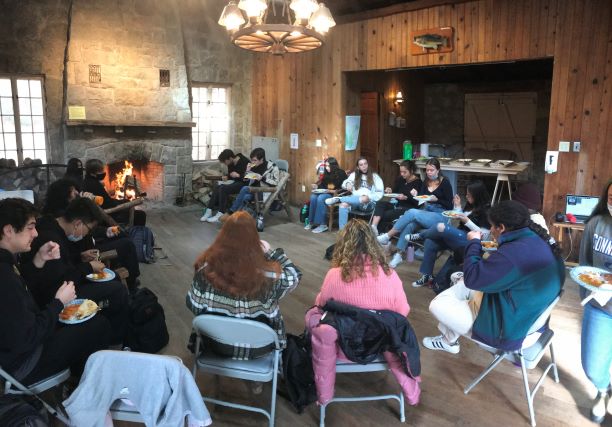
In the Fall 2021 semester, Connecticut College’s music liaison librarian Andrew Lopez worked with Associate Professor of Music Dale Wilson’s first year seminar called Lush Life: A Jazz Story to create a playlist of Duke Ellington songs to be played on the College’s radio station, WCNI 90.9 FM. Near the end of the semester, by which time students had spent several months reading about and discussing the life and music of Duke Ellington, students were asked to select one Duke Ellington song each to contribute to the class playlist, and prepare a brief introduction explaining the reason for their selection. Students rehearsed their introductions and shared their song selections in the casual setting of a fireside holiday lunch in Buck Lodge in the Connecticut College Arboretum. Lopez used the Greer Music Library to source high quality audio files to assemble the playlist, which was shared with WCNI disc jockey Wil [with one L] Reed, who gratefully shared about an hour of his Thursday afternoon radio show with the class on December 16, 2021.
*** Enjoy listening to the full broadcast here. ***
Submitted by Andrew Lopez
NEMLA Officers
Publication Information
New England Quarter Notes is published quarterly in the fall, winter, spring, and summer.
Back issues may be accessed from:
http://nemla.musiclibraryassoc.org/resources/newsletters/
Address all correspondence concerning editorial matters to:
Jennifer Hadley
jthom at wesleyan.edu
Inquiries concerning subscription, membership and change of address should be directed to:
Carol Lubkowski
clubkows at wellesley.edu
Membership year runs July 1st to June 30th.
Regular Personal Membership:$12.00
Student and Retired Membership:$6.00
Institutional Membership$16.00
Return to the New England Music Library Association home page.
